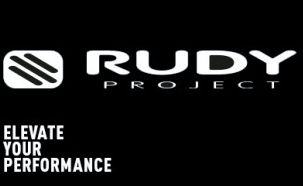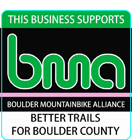The Cyclist's Food Guide. Reviewed by Michelle Grainger
/printed in Ultra Cycling Magazine
When I was asked to read and review The Cyclist's Food Guide, by Nancy Clark and Jenny Hegmann, I jumped at the chance. I have read several of the books that Clark has written for athletes and I have found all her books to be well written and easy to understand. Clark and Hegmann draw on a rare combination of scientific training, scholarly research and practical experience.
The book has a foreword by Michael McCoy who has been involved with the Adventure Cycling Association since the organization began in the mid-1970s. The ACA helps cyclists organize crosscountry tours, including eating for successful touring.
I've raced for 20 years and worked as a coach and personal trainer for almost that long. As soon as I started The Cyclist's Food Guide I could tell it was going to be informative and practical; a quick, easy to follow nutritional guide for the average person.
As cyclists and athletes, we often forget to enjoy food. Instead we skip meals, eat energy bars and drinks, and then look for fast food to satisfy our cravings.
Many cyclists either under eat or over eat. We can all learn to enhance our athletic performance by learning to time our eating before and after rides and learning which foods are the best to achieve our nutritional and athletic goals. As you read The Cyclist's Food Guide you will learn all of this and much more.
One of the things I really liked about the format of The Cyclist's Food Guide is that each chapter includes pages of tips, guides and charts with examples of what to eat, serving intakes, menus, and how-to or how-not- to guides for successful food planning. This book contains great suggestions on breakfast lunch, and dinner choices with tasty recipes.
Information is included about every day eating for athletes. You will read about how to balance protein, carbohydrates and fats in a cyclist's diet and how to meet your vitamin and mineral needs. The book explains how to calculate your calorie needs so you have the energy you need to ride, race and train smart. Clark and Hegmann also suggest that carbonated drinks may be used as an additional liquid fuel.
One of my favorite sections is on preventing the dreaded "bonk" on rides and events-we've also suffered from that!
The book is very practical with easy quick fixes for dinner. They also offer helpful suggestions on how not to gain weight during the long off-season, From their education and years of experience Ms. Clark and Ms. Hegmann have written a nutrition book for the cycling tourist, the racer, and the recreational rider. The book can teach us to select foods so we ride better and recover quickly.
Everyone who reads this book will take away more information than they thought. They will learn about eating for their rides, as well as, eating right throughout life. Food is not only fuel for our training but an enjoyable way to share time with our family and friends.
You will find out that caffeine is not as bad as we may have thought as a ride drink and it may help your cycling performance.




